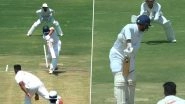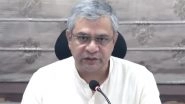Chennai, Nov 17 (PTI) Independent exercise of judicial power was not only a judge's prerogative but also a duty and it was therefore important that judges decide matters based on their own appreciation of the law and as per their conscience, unfettered by other views, Justice B V Nagarathna, Judge of the Supreme Court has said.
Delivering the Justice S Natarajan Centenary Commemoration lecture here on Saturday, Justice Nagarathna, furthermore said that it was ultimately conviction, courage and independence of judges which decide matters before a court of law.
She said: "From the aspect of judicial independence within the court system, separate opinions or dissenting opinions must be seen as an expression of mutual independence of the judges, i.e., independence of a judge from other judges. This is independence of the judiciary in its most enlightened form."
She noted that she and Justice Bela M Trivedi had dissented on Constitutional bench matters. Her lecture was on the theme of "Checks and Balances under the Indian Constitution through a Looking Glass."
Also, she said only an independent and impartial judiciary can effectively exercise its power of judicial review.
Judicial independence is the degree to which a judge decides cases consistent with his/her own interpretation of the law, sometimes, in opposition to what others think or desire in like matters.
On Justice Natarajan (former Supreme Court Judge) , she said he demonstrated his legal acumen and deep wisdom in his judgments and by way of his contributions to the salient fourteen Constitution Benches he was a member of. His commitment to law as a tool for justice and respect for the Constitution shone in his judgment in Begum Subanu alias Saira Banu and Another vs A M Abdul Gafoor, (1987).
Justice Natarajan held that the right of a Muslim husband to a polygamous marriage cannot act as a bar on operation of Section 125 of the CrPC 1973.
Justice P Sathasivam, former Chief Justice of India, former judges of the apex court, sitting and retired judges of the Madras High Court, Advocate General, P S Raman and members of the bar took part.
(The above story is verified and authored by Press Trust of India (PTI) staff. PTI, India’s premier news agency, employs more than 400 journalists and 500 stringers to cover almost every district and small town in India.. The views appearing in the above post do not reflect the opinions of LatestLY)













 Quickly
Quickly


